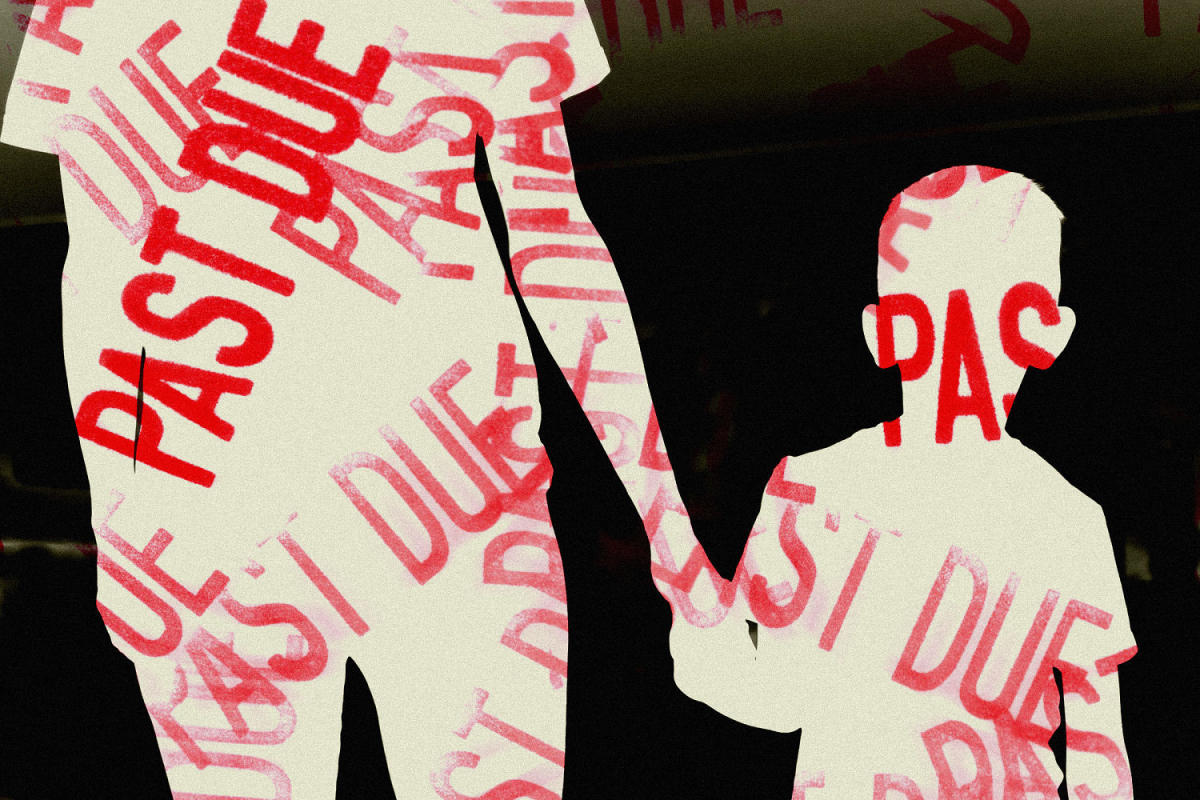Bussiness
Why parents with young children are reporting a dramatic drop-off in their financial well-being

Parents with younger children saw a significant drop-off in their reported financial well-being last year, according to an annual comprehensive study of American household finances released by the Federal Reserve last week.
The Survey of Household Economics and Decisionmaking found a decline in the percentage of parents living with children under age 18 who felt financially secure, dropping from 69% in 2022 to 64% in 2023. That was also down from a record high of 75% in 2021.
The current figure is now the lowest on record going back to 2015, the Fed survey data shows.
The Fed does not explicitly state the reason for the dramatic decline in sentiment among those who participated in the survey, though it does note that the monthly child care expenses some families are facing have climbed to nearly as much as the cost of rent.
Experts say that is the product of two key recent events that have destabilized many American families’ finances: the expiration of the pandemic-era expanded child tax credit — which saw some families receive monthly payments of up to $250 per older child and $300 per young child — and the sunsetting of support for child care groups.
Both of those changes began to unfold in 2022.
Since the tax credit expired, according to the Columbia University Center on Poverty and Social Policy, “many families with children have seen a reversal of fortune … including lower disposable income and increased poverty, food hardship, and financial strain — posing an ongoing challenge for families nationwide.”
Ismael Cid-Martinez, an economist with the Economic Policy Institute, a left-leaning think tank, said the aftereffects have been evident. Fewer parents say they can come up with $400 in an emergency, and they report more instances of food insufficiency.
After 2021, Cid-Martinez said, “parents’ savings began to dwindle.”
Another key pandemic program provided increased financial support to child care centers. That support, too, has ended without being reinstated.
With the exception of those in a handful of states, most child care organizations were forced to either raise their prices or close.
This was known as the “child care cliff.”
In the case of North Carolina, nearly 1,800 child care programs were projected to close, according to a forecast from the liberal-leaning Century Foundation think tank.
Julie Kashen, a senior fellow and the director for women’s economic justice at the foundation, said any relief from Washington to address the issue is now a long shot thanks to resistance from congressional Republicans seeking to reduce the federal budget.
“One legislator has said supporting child care is like supporting golden retrievers,” Kashen said. “But then the question always becomes, ‘How are we going to pay for it?’”
‘At least doing okay’
The Fed survey found that overall, the financial well-being for most Americans slightly worsened in 2023, with 72% reporting they were “at least doing okay” financially — down from 73% in 2022 and from the post-pandemic high of 78% in 2021. The rate hasn’t been that low since 2016.
Inflation remained the top complaint among respondents, with the rate of concern about high prices increasing from 33% to 35%. That compares with just 8% mentioning inflation as a concern in 2016, the last year that question was asked.
The survey continued to show that a significant share of Americans remain immunized from any financial concerns at all, with 31% responding “none” to the question about the main challenges they face. That is up from 28% in 2022, though down from 53% in 2016.
President Joe Biden has recognized inflation as an ongoing top concern among voters, calling on retailers to lower their prices. This week, it appeared as though Target answered the call when it announced a plan to roll out price cuts to 5,000 everyday items.
Yet the most recent NBC News poll found that more voters trust Donald Trump than Biden to deal with inflation and the cost of living — even though many economists say Trump’s proposals to address the situation would likely lead to prices going up.
This article was originally published on NBCNews.com







:max_bytes(150000):strip_icc()/roundup-writereditor-loved-deals-tout-f5de51f85de145b2b1eb99cdb7b6cb84.jpg)


